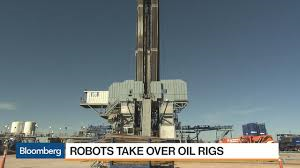
Breaking News
 $26M Frozen on Blockchain - With One Click
$26M Frozen on Blockchain - With One Click
 Italy are on national strike shutdown rejecting digital enslavement...
Italy are on national strike shutdown rejecting digital enslavement...
 The following U.S. states are currently using the rebranded "Reporty Homeland Security" so
The following U.S. states are currently using the rebranded "Reporty Homeland Security" so
 NATO Chief Urges Europe To Prepare For Long-Term World War With Russia, China, Iran & North Korea
NATO Chief Urges Europe To Prepare For Long-Term World War With Russia, China, Iran & North Korea
Top Tech News
 HUGE 32kWh LiFePO4 DIY Battery w/ 628Ah Cells! 90 Minute Build
HUGE 32kWh LiFePO4 DIY Battery w/ 628Ah Cells! 90 Minute Build
 What Has Bitcoin Become 17 Years After Satoshi Nakamoto Published The Whitepaper?
What Has Bitcoin Become 17 Years After Satoshi Nakamoto Published The Whitepaper?
 Japan just injected artificial blood into a human. No blood type needed. No refrigeration.
Japan just injected artificial blood into a human. No blood type needed. No refrigeration.
 The 6 Best LLM Tools To Run Models Locally
The 6 Best LLM Tools To Run Models Locally
 Testing My First Sodium-Ion Solar Battery
Testing My First Sodium-Ion Solar Battery
 A man once paralyzed from the waist down now stands on his own, not with machines or wires,...
A man once paralyzed from the waist down now stands on his own, not with machines or wires,...
 Review: Thumb-sized thermal camera turns your phone into a smart tool
Review: Thumb-sized thermal camera turns your phone into a smart tool
 Army To Bring Nuclear Microreactors To Its Bases By 2028
Army To Bring Nuclear Microreactors To Its Bases By 2028
 Nissan Says It's On Track For Solid-State Batteries That Double EV Range By 2028
Nissan Says It's On Track For Solid-State Batteries That Double EV Range By 2028
Robots Over Roughnecks:

The inevitable advance of technology and automation has upended industries such as car manufacturing and food processing. Now robotics is making its way into the oil fields by helping drilling activities and putting together heavy pipes.
For companies, more automation would mean higher efficiency, safer operations, and ultimately, lower drilling and production costs. For oil rig workers, it would mean that part of the jobs lost during the oil price downturn would never return. Also, part of the new job openings would require a different type of skill set: for example, information technology and advanced computer skills.
But even if automation is expected to increase, and some day take over drilling sites and drillships, it is not the norm in the oil and gas industry today. While there have been early adopters, the oil and gas drilling business is still years away from becoming an automated activity.

 Carbon based computers that run on iron
Carbon based computers that run on iron

